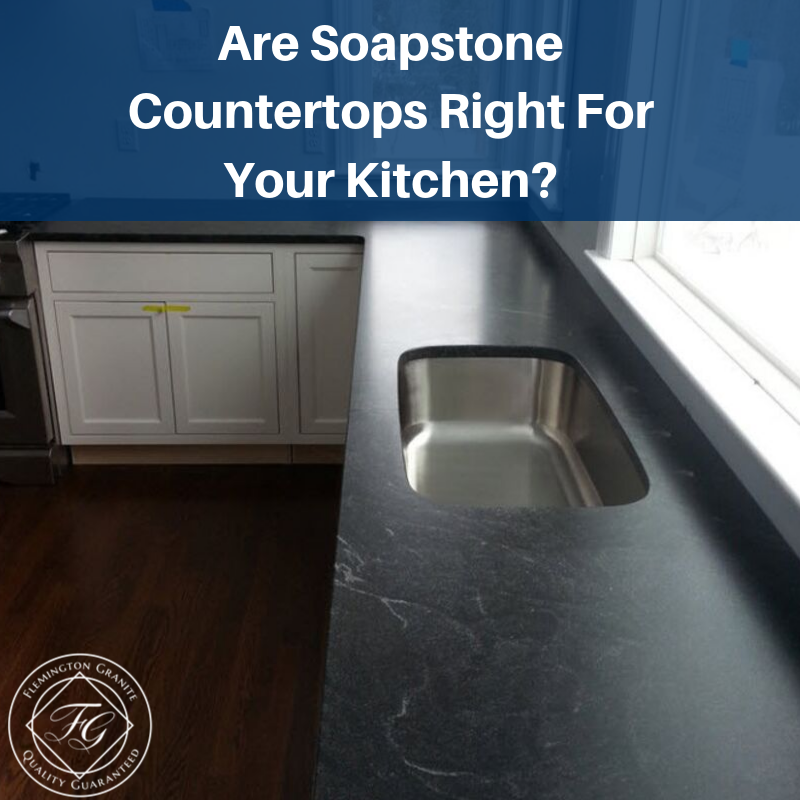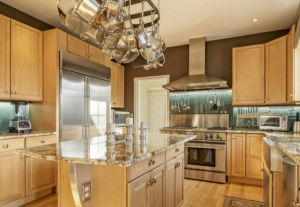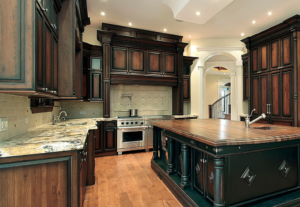
Stone countertops are an elegant and stylish way to accent your home with the beauty of nature. In most cases, a slab of polished stone looks much better than a slab of wood. More importantly, it will probably last much longer. But that still leaves us with one question: Which kind of stone to use?
Today, we will be taking a look at soapstone, which is one of the more popular choices. Our purpose is to help you determine if this kind of stone is right for your home. We will do this by evaluating the stone based on a set of important factors.
Factor 1: Price
Most of the time, soapstone tends to be cheaper than other stones like marble or granite. There are several reasons for its reduced cost, but most of it probably comes down to availability and convenience. Soapstone is very common throughout the world, much like granite. Unlike granite, it is fairly easy to cut and shape. This makes the mining process easier and cuts down the price.
But how much of a difference are we talking here? Let’s make a quick price comparison. We can search for prices on stone slabs, which will give us a good idea of the price per square foot. So, let’s compare marble, granite, and soapstone.
Here is a marble countertop that measures about 1×6 feet. Its cost is about $170. That comes out to $28 per square foot. Here is a granite countertop that measures about 2×9 feet and costs $485. That equals about $27 per square foot. Finally, here is a site that sells soapstone countertops for $14.00 per square foot. Thus, we can see that soapstone is about half the cost of granite or marble.
Factor 2: Durability
When it comes to durability, soapstone is a double-edged sword. On the one hand, soapstone does a much better job of resisting moisture, staining, and heat damage. On the other hand, soapstone is much more vulnerable to scratching and chipping. All of these qualities come down to the properties of the stone itself.
Soapstone is a non-porous stone, which means that it presents a completely smooth surface. Liquids cannot penetrate the surface because there is simply nowhere for them to go. Granite, marble, and many other types of stone are porous, which is why they absorb moisture and stain. This is why those types of stone require a good sealer product to obtain maximum longevity. Soapstone doesn’t have that problem.
However, soapstone is a relatively soft stone. The hardness of all substances is measured on the Mohs scale, and soapstone ranges between 0 and 1. Soapstones that are used in countertops will usually be on the high end of that spectrum, but that is still a very soft stone.
Because of this, you will need to be careful not to use your soapstone counter as a cutting board. Get a separate cutting board, as steel will quickly scratch and gouge a piece of soapstone. In fact, it’s good to keep sharp objects off the stone as much as possible. You should also be careful not to slam heavy objects on a soapstone counter, as this can also break them. Thankfully, it is often possible to repair a damaged soapstone slab with epoxy or other methods. Also, soapstone is very easy to sand, which makes it easier to sand away those ugly little scratches.
Factor 3: Appearance
When it comes to beauty, soapstone can hang with the top contenders. Like granite and marble, soapstone comes in a huge variety of patterns and colors, although black and grey are the most common colors. Different types of soapstone are found in different localities. For instance, take a look at Gala Red soapstone, which is one of the most beautiful varieties.
For some people, the relatively small color palette of soapstone could be a problem. Most soapstone is not brightly-colored, so it may not go with your decor if bright colors are what you prefer. Still, dark colors tend to go with anything. Surprisingly, soapstone will actually change color over time. As soon as you pull this stone from the ground, it begins to oxidize much like iron or steel. This normally causes a darkening of the stone that some people really find attractive.
Factor 4: Maintenance
Soapstone requires far less maintenance than most other stone countertops. While granite and marble require sealing, soapstone does not. We have already mentioned the non-porous nature of this stone, which means that you don’t need to spend money on a sealer. Since most sealers have to be re-applied, that also cuts down on maintenance.
The short version of the story is that soapstone requires no maintenance whatsoever. It might require repair if damaged, but that isn’t the same thing. There is only one maintenance process that you will ever want to do on this kind of stone, and it is an optional one. If you want to accelerate the natural darkening of the stone, you can rub it down with mineral oil or wax to darken the surface.
Conclusion
Overall, soapstone has quite a few benefits. It doesn’t stain, and it is immune to water, chemical, and heat damage, and requires no maintenance. Not only that, but it tends to be a lot cheaper and is just as beautiful as any stone on the market. However, it doesn’t hold up well to hard use. Knives, heavy cooking pots, and other steel implements can really do a number on this kind of countertop if you aren’t careful.
Overall, we advise you to base your decision on your kitchen habits. If you like to move fast and throw things around, this might not be the right kind of countertop for you. If you are one of those “slow and steady” types, the lack of durability should present no real problem. We hope that you have enjoyed this article and that we have given you all the information that you need and more. If this is the case, please fill out the contact form below to receive more crucial information like this.






